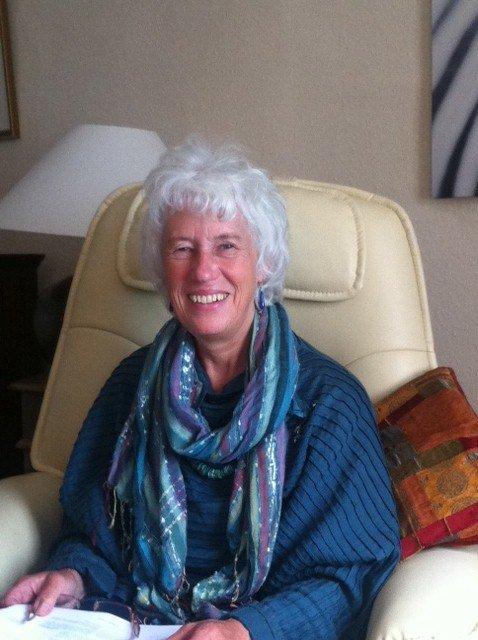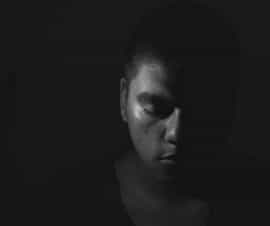The NHS definition of addiction is: ‘Not having control over doing, taking or using something…

Depression (blog 3) – Getting help, by Lindie White
4.
Depression (blog 3) – Getting help, by Lindie White

In the last of our blog series on depression, psychotherapist, Lindie White, writes:
Most people need help when they are depressed or have prevailing sadness and low mood. If we can’t acknowledge this when we’re suffering, then that’s part of the problem! The essential first step is to name your depression to yourself and someone else. When it is acknowledged, then what?
If you go to a GP you will be offered medication and/or some kind of talking therapy.
Medication can help some people, sometimes, although some find that anti-depressants don’t help at all or are not enough on their own.
Therapy really does help tackle depression and there are many different kinds of talking therapies on offer. Most commonly available through the GP is Cognitive Behavioural Therapy (CBT), often delivered by an in-house counsellor. This aims to address negative, self-destructive and ‘untrue’/unrealistic thinking patterns. Other therapies include psychodynamic or psychoanalytic – stemming from Freud and Jung’s thinking about the unconscious – and humanistic or person-centred – focusing on helping the client find their own answers. All therapies have different emphases and have been developed as people discovered that no one method serves all people or meets all needs.
Research has consistently found that what makes the real difference is the therapist rather than the therapy. So, do some research, see what appeals to you, and trust your instinct as to how you ‘fit’ with a particular therapist and how the first one or two sessions feel. A good therapist will facilitate this sort of discussion.
The following are important factors in successful counselling and psychotherapy:
• a good working alliance between therapist and client
• a therapist who listens well and is responsive and flexible within reason
• a therapist who displays qualities of empathy, warmth and care
• an agreement between the client and the therapist on the goals of the work
• a client who is highly motivated for change and relief of suffering
• a therapist who can enable the client to experience calm if the client is highly aroused with anxiety or other emotion
A key point in dealing with depression and its recurrence is that it is our emotional reaction to our emotions that keeps them going and complicates them. We can exercise choice about our reactions when we have greater awareness and can fully engage our will to heal ourselves.
As practitioners and clients, we need to keep exploring better ways to find this healing and bring a natural, organic quality of enjoyment and engagement to our lives. A recent development has been to integrate insights and practices of Buddhist-based mindfulness, yoga and meditation with more traditional talking therapies. (See The Mindful Way through Depression, Freeing Yourself from Chronic Unhappiness by Mark Williams, John Teasdale, Zindel Segao and Jon Kabat-Zinn, Guilford Press, 2007.)
Many people are also helped by complementary therapies, an approach we promote at Wendy Bramham Associates. Acupuncture, homeopathy, massage, nutrition and chiropractic are all useful for different issues, so explore what appeals to you.
Whatever path of therapy you pursue, do your research and follow your own instincts, hints and leads. Each of us makes our own path by walking it, connecting and disconnecting with others as we do so. And if you feel so low that you don’t know where to go, ask yourself what might appeal if you weren’t feeling so depressed and follow that, maybe with the support of someone you trust. Therapy is a powerful tool for combating depression, so have courage to take the first step and seek help.
See previous posts on this blog for more information about types of therapy, the effect of life choices, how therapy helps and book recommendations.
We particularly recommend the following books on depression and how to live with and through it:
Kick the Damn Dog – a memoir of depression, by Sally Brampton, Bloomsbury 2009
Depression – the way out of your prison, by Dorothy Rowe, Routledge 2003
Living with a Black Dog, by Matthew and Ainsley Johnstone, Pan Macmillan Australia, 2008
First Steps out of Depression, by Sue Atkinson, Lion Hudson, 2010
The Endorphin Effect, by William Bloom, Piatkus, 2011
Plus, on spirituality:
The Power of Now, by Eckhartt Tolle, New World Library, 2004
The Power of The New Spirituality, by William Bloom, Piatkus, 2012
And an audio CD for guided meditation:
A Meditation to help you relieve Depression, by Belleruth Naperstek, Health Journeys, 1993




This Post Has 0 Comments